To support the implementation of our career resources, we have developed lesson ideas that will engage youth and help them think deeply about their futures. While these lessons address the curriculum strands and topics of most Canadian career development courses, STEM teachers can also use them to familiarize students with careers related to the topics they are studying.
Featured Lessons

STEAM Jobs Around the World
Lessons
Students will develop critical thinking skills as they investigate STEAM careers locally and internationally.
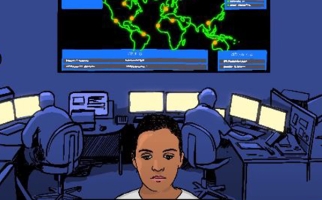
Careers of the Future
Lessons
Students will learn about potential careers of the future and create their own job description.
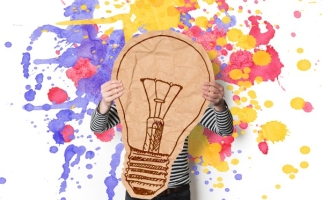
Attributes and Skills of Innovators
Lessons
Students explore the attributes and skills that can make someone a successful innovator.
Science and Technology

What do you want to DO when you grow up?
Lessons
Students will use online tools and job search engines to explore career possibilities and the job market.

When am I ever going to need chemistry?
Lessons
Students will be introduced to careers where chemistry is relevant to everyday life and will explore chemicals in familiar household products.

STEAM Jobs Around the World
Lessons
Students will develop critical thinking skills as they investigate STEAM careers locally and internationally.

You Be the Crime Scene Investigator
Lessons
Students will learn about crime scene investigation and its connections to cell biology and careers.

So you’re interested in a career in healthcare?
Lessons
Students will explore the many career pathways associated with a career in healthcare.
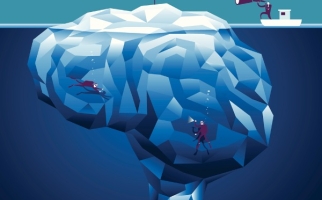
Tip of the Career Iceberg
Lessons
Students will explore the breadth of career opportunities through brainstorming, research and graphic organizers.

Coding is For Everyone!
Lessons
Students will learn the importance of computer programming skills across a variety of career areas and how these skills can make them more employable.
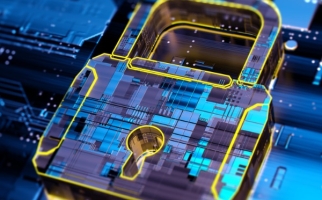
Cybersecurity Career Exploration
Lessons
Students will explore different possible working environments related to the field of cybersecurity.
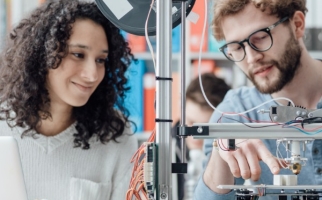
Engineering a Future Career
Lessons
Students explore the different branches of engineering and discover the similarities and differences between them.
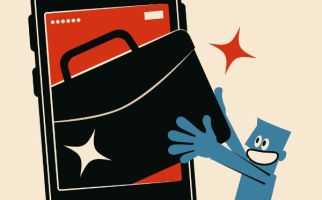
Virtual Career Fairs for the Science Classroom
Lessons
Students conduct a virtual exploration of careers and career pathways with connections to science.
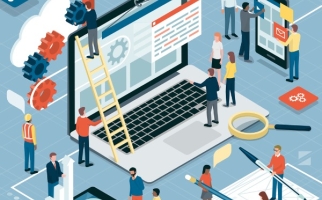
My STEAM Portfolio Website
Lessons
Students will create a personal website to demonstrate the STEAM skills and concepts they have learned in class/school.
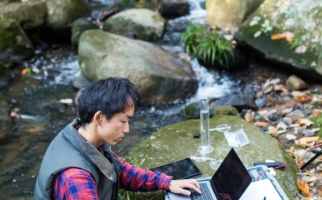
Careers in the Great Outdoors
Lessons
Students explore careers related to outdoors and the land and then design and build a water filter prototype.
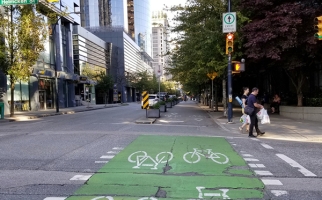
Design a Bike Lane
Lessons
Students will plan the development of a bike lane and explore careers associated with such a development.
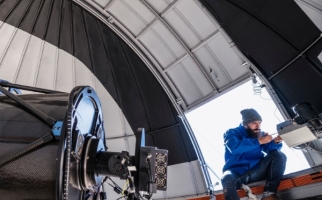
Careers in Physics
Lessons
Students explore careers in the area of physics and relate their science classroom learning to specific careers.

Careers of the Future
Lessons
Students will learn about potential careers of the future and create their own job description.

Exploring Career Sectors and Skills
Lessons
Students will explore STEM career sectors and the skills required for a variety of STEM careers.

How Does STEM Support Non-STEM Careers?
Lessons
Students will explore how STEM skills are needed in non-STEM careers.

STEM Skills and Self-Exploration
Lessons
Students learn how the STEM skills that they develop in class apply to future career options.
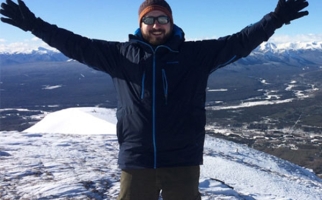
Query a Career Profile
Lessons
Students will explore career profiles and relate them to what they are learning in science class.
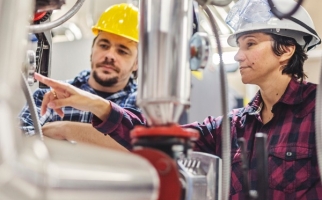
Exploring Engineering Careers
Lessons
Students will learn about the different types of engineering and the various post-secondary pathways available.
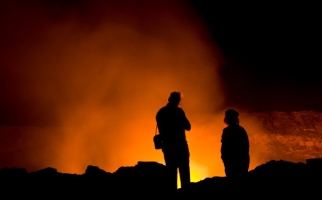
Career Exploration : Volcanologist
Lessons
Students construct a model of a volcano and explore the career of a volcanologist.

Innovating with Form and Function
Lessons
Students use their understanding of form and function to design an innovative object or device.
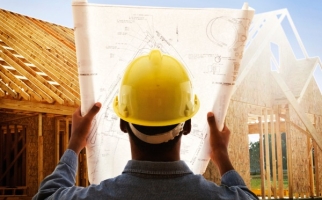
Careers with Form and Function
Lessons
Students explore careers that involve the concepts of form and function.

Learning About Technological Careers
Lessons
Students will research careers and post-secondary pathways related to their current course.
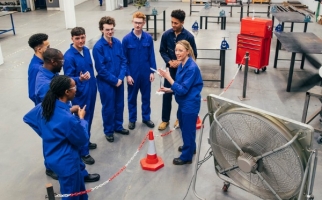
Demonstrating Skills in Technological Careers
Lessons
Students will learn and demonstrate skills required in a career of interest.
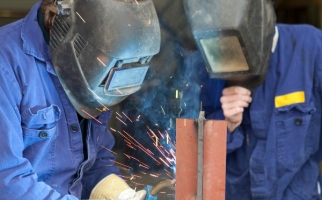
Exploring Skilled Trades and Apprenticeships
Lessons
Students explore a variety of skilled trades careers and learn about training requirements.
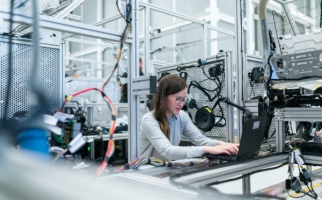
Exploring Careers in STEM Grade 8
Lessons
Students will expand their knowledge of STEM career types related to a topic they are studying in science.

Exploring Career Types
Lessons
Students will recognize that there are many different ways to earn a living and that a ‘career’ does not necessarily have to be a 9 to 5 arrangement.
Students will recognize that different career types and job arrangements have their own positive and negative aspects.
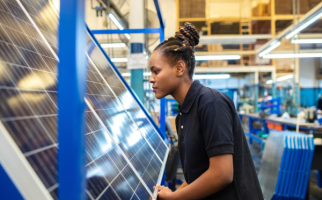
Careers In Sustainability
Lessons
Students explore non-traditional careers related to sustainability and sustainable development.
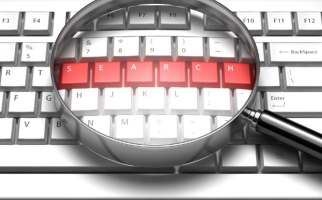
A STEM Scavenger Hunt
Lessons
Students will explore the Let’s Talk Science careers resources and learn about career options that require, or benefit from, a background in STEM.

Crack the Code: Water Treatment
Lessons
Students learn about the water treatment process as they complete a digital “escape room” on a Google site.
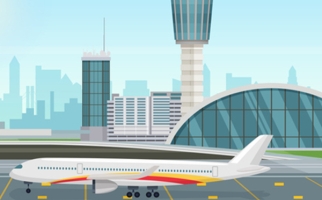
Up, Up and Away: Careers in Flight
Lessons
Students will learn about the wide variety of jobs related to the aviation industry.

Exploring Careers in STEM Grade 7
Lessons
Students will expand their knowledge of STEM career types related to a topic they are studying in science.
Elementary/Middle School

Choose Your Own Adventure Autobiography
Lessons
Students reflect upon the influences on their career path journeys to date and summarize these in an autobiographical poem or Powerpoint presentation.
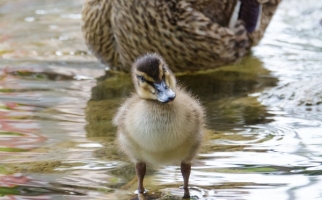
Testing the Waters
Lessons
Students learn about how to gain experience and be exposed to, or “test the waters,” of careers that align with their personal occupational goals.
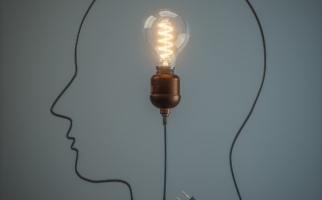
Light and Sound Inventions that Changed the World
Lessons
Students will explore the societal impacts of inventions involving light and sound.

Attributes and Skills of Innovators
Lessons
Students explore the attributes and skills that can make someone a successful innovator.
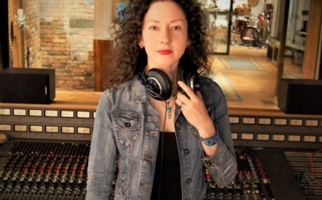
Careers with Light and Sound
Lessons
Students complete a jigsaw activity to learn about careers involving light and sound.

Up, Up and Away: Careers in Flight
Lessons
Students will learn about the wide variety of jobs related to the aviation industry.

Exploring Careers in STEM Grade 7
Lessons
Students will expand their knowledge of STEM career types related to a topic they are studying in science.

Exploring Careers in STEM Grade 8
Lessons
Students will expand their knowledge of STEM career types related to a topic they are studying in science.
Lessons for Career Exploration/Career Development Courses
Introduction to Career Development
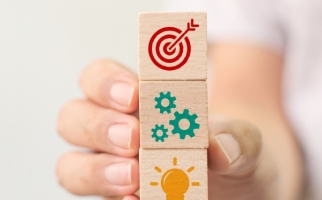
Introduction to Career Development
Lessons
Students are introduced to career development as a lifelong process as they visualize who, what and where they want to be when they graduate.

A STEM Scavenger Hunt
Lessons
Students will explore the Let’s Talk Science careers resources and learn about career options that require, or benefit from, a background in STEM.

Introducing Career Options
Lessons
Students will be introduced to career development and begin thinking about different career options.

Tip of the Career Iceberg
Lessons
Students will explore the breadth of career opportunities through brainstorming, research and graphic organizers.

Visualizing Your Career
Lessons
Using the process of visualization, students will start to identify preferred aspects of their ideal career.
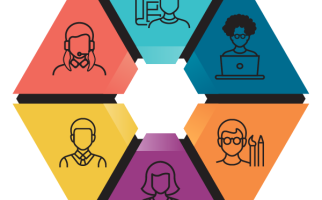
Work Interests and the Holland Code
Lessons
Students are introduced to the Holland Code framework and types of work interest themes. They are then challenged to identify their own career personality and occupational ideas.
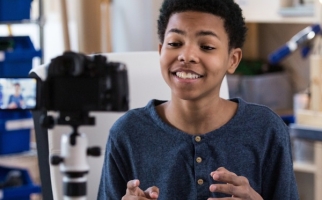
Flipgrid Career Showcase
Lessons
Students will create videos showcasing a career profile that they are interested in.

How do I decide?
Lessons
Students will explore a variety of decision-making strategies, and reflect on their decision-making style.
Employability Skills
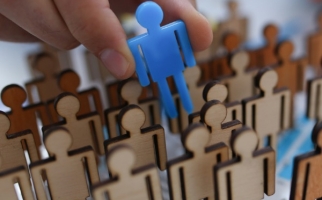
What are Your Employability Skills?
Lessons
Students will identify employability skills in which they are strong and those that need work, create an Employability Skills Profile and develop plans to improve their employability skills.
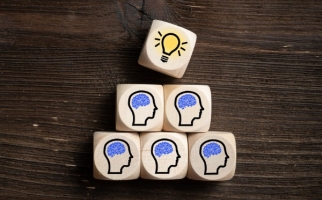
The Skills Employers Look For
Lessons
Students will identify the skills that employers look for in potential employees.
Students will recognize that they have skills and abilities that align with employer needs.
Students will make personal connection between their interests and current skills with the person in the career profile.

What Skills do I Need for the Workplace?
Lessons
Students will deepen their understanding of the concept of employability skills. Students will develop an awareness of opportunities available for those who have well-developed employability skills.
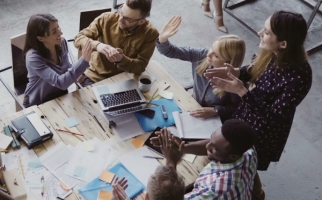
Your Personality and the Workplace
Lessons
Students recognize the importance of the connection between life choices and their personal characteristics. Students will make connections between who they are now, the people they wish to become (their future selves), and their connections with work.

Global Competency Skills Inventory
Lessons
Students will take inventory of their Global Competency skills, reflect on their strengths, and set next steps for mastery of these skills.

Communication is Key
Lessons
Through hands-on activities, students will distinguish how social and work situations require both verbal and non-verbal means of communication.
Essential Skills
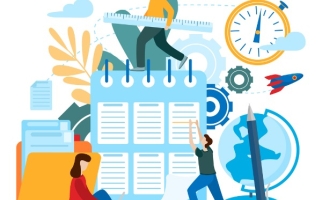
What are Essential Skills?
Lessons
Students will understand the importance of the Nine Essential Skills.
Students will recognize the importance of each Essential Skill in their future careers and lives.
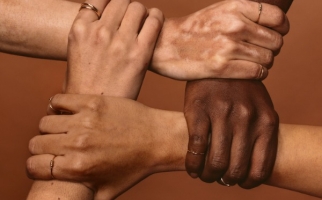
Untangling Your Skills
Lessons
What important skills do students need to get untangled? Find out in this experiential activity that explores “essential skills”.
Career Adaptability – Change & Growth

BYO Career Development Timeline
Lessons
Students will come to see themselves as people who have skills and knowledge that are valuable to entering the world of work.
Students will recognize that skills and abilities are developed in both formal and informal settings.
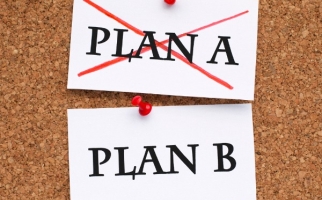
What’s your Plan B?
Lessons
Students will recognize the importance of flexibility and adaptability when it comes to career choices.
Students will recognize that previous education is an asset that provides for great flexibility and adaptability.

Choose Your Own Adventure Autobiography
Lessons
Students reflect upon the influences on their career path journeys to date and summarize these in an autobiographical poem or Powerpoint presentation.

What do you want to DO when you grow up?
Lessons
Students will use online tools and job search engines to explore career possibilities and the job market.

Responding to Life’s Curveballs
Lessons
Students will explore what it means to be adaptable and flexible, and learn how to solve problems in a proactive way with respect to career planning.

How do I decide?
Lessons
Students will explore a variety of decision-making strategies, and reflect on their decision-making style.
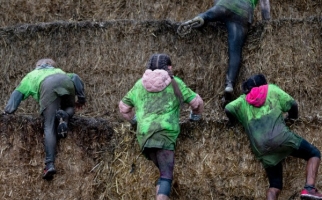
Resiliency on the Career Path
Lessons
Students will learn about career resilience by reviewing career profiles on the Let’s Talk Science career resource website

Is This For Me? Reflecting On Occupational Fit
Lessons
Students engage in self-reflection as they consider occupational fit and how various career options align with their personal strengths and preferences.
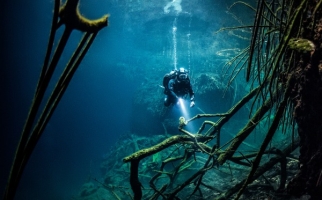
Taking Risks in Your Career
Lessons
Students learn about different ways that people take risks in their careers.
Personal Management & Planning

Choosing a Credit Card
Lessons
Students will identify and distinguish between different types of credit cards, develop an understanding of credit cards costs and features, and learn how to shop for a credit card.

Sketching Your Career Path
Lessons
Students use a sketch note learning strategy to map out their career path.
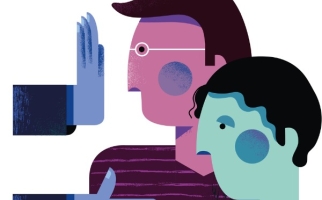
Discrimination in the Workplace
Lessons
Students define workplace discrimination and analyze scenarios.

Taking Risks in Your Career
Lessons
Students learn about different ways that people take risks in their careers.
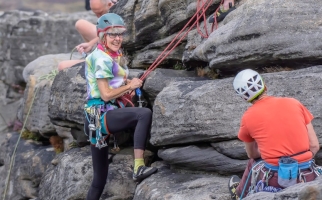
How Can I Take Responsible Risks?
Lessons
Students share examples of responsible risk-taking and reflect on how they can take risks.

Developing Successful Work Habits
Lessons
Students will learn about work habits that can help them succeed in any career.

Is This For Me? Reflecting On Occupational Fit
Lessons
Students engage in self-reflection as they consider occupational fit and how various career options align with their personal strengths and preferences.
Lifestyle and Aspirations

What’s My Lifestyle?
Lessons
Students will realize that high salaries are not always equated with a great lifestyle.

Exploring Motivational Factors
Lessons
Students will explore motivational factors that influence a person’s career on a daily basis.
Students will recognize motivational factors that are similar to their own.
Student will identify the factors that motivate or are important to them as they explore or plan for future career opportunities.
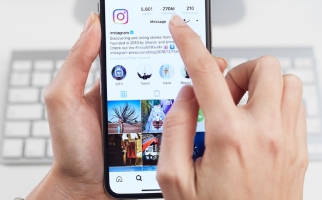
Instagram It
Lessons
Students choose a career to research and create an Instagram profile about that career choice.

Career Talk Show
Lessons
Students will research a career (or career sector) and role-play being a person in that career being interviewed by a talk show host.
Career Preparations

Factors Affecting Career Choice
Lessons
Students explore and discuss factors they should consider when they are planning a career path.
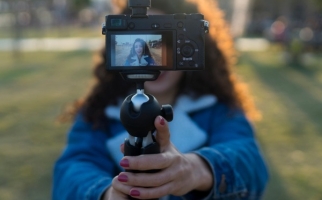
Creating Your Career Documentary
Lessons
Students will engage in a ‘forward thinking’ exercise. This exercise addresses the following: what they want from life, the skills and abilities they have now that are useful for future career decisions, the skills and abilities they will need to develop, and how they are going to connect who they are with who they want to be and what they want to do.
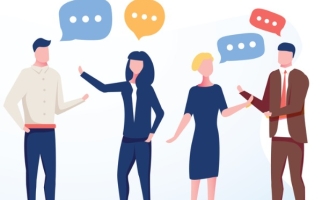
Learning from the Experience of Others
Lessons
Students will recognize the benefit of seeking advice from those experienced in specific career areas that interest them.

Making Informed Career Choices
Lessons
Students will learn that possessing the right kind of information is important for making an informed career decision as well as for future career success and stability.

Exploring Career Types
Lessons
Students will recognize that there are many different ways to earn a living and that a ‘career’ does not necessarily have to be a 9 to 5 arrangement.
Students will recognize that different career types and job arrangements have their own positive and negative aspects.
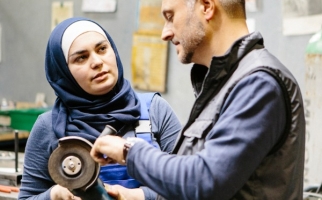
What Influences our Career Choices?
Lessons
Students will develop the understanding that there are many things that influence a person’s career choice.

Learning About Educational Pathways
Lessons
Students will be aware of and understand the importance of, various learning pathways that lead to successful life and work experiences.
Students will become aware of the variety of STEM careers available in each of these different learning pathways.

The Role of Personal Skills and Interests
Lessons
Students will further develop their understanding and appreciation of the importance of personal interests, skills, achievements as well as previous job skills and experiences to the career development process.

Work Interests and the Holland Code
Lessons
Students are introduced to the Holland Code framework and types of work interest themes. They are then challenged to identify their own career personality and occupational ideas.

Testing the Waters
Lessons
Students learn about how to gain experience and be exposed to, or “test the waters,” of careers that align with their personal occupational goals.

Mapping My Volunteer and Work Experience
Lessons
Students learn how to find a volunteer and work experience and then develop a detailed plan to apply for one of these experiences.

Instagram It
Lessons
Students choose a career to research and create an Instagram profile about that career choice.

Ace the Interview!
Lessons
Could you ace a job interview? Students learn about preparing for a job interview and practice important interview skills.
Occupational Clusters

A Virtual Career Fair
Lessons
Students will learn about various careers, and career pathways, through their review of various career profiles.
Students will continue to develop their understanding of the importance of STEM courses/programs for future career pathways.
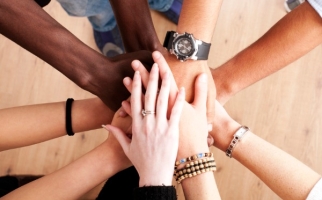
The Role of Formal and Informal Education
Lessons
Students will develop an understanding of the differences between, and value of, both formal and informal education in the career development process.

Exploring Occupational Clusters
Lessons
Students will recognize the variety of careers available in each occupational cluster.
Students will recognize that many of these careers require or benefit from a background in science, technology, engineering and math (STEM).
Students will make personal connections between their interests and current skills to the people profiled.

So you’re interested in a career in healthcare?
Lessons
Students will explore the many career pathways associated with a career in healthcare.

Virtual Career Fairs for the Science Classroom
Lessons
Students conduct a virtual exploration of careers and career pathways with connections to science.
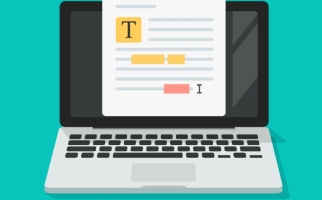
Virtual Career Fairs for the English Language Arts Classroom
Lessons
Students conduct a virtual exploration of careers and career pathways with connections to English Language Arts.

Virtual Career Fairs for the Arts Classroom
Lessons
Students conduct a virtual exploration of careers and career pathways in the field of the arts (drama, dance, music, visual arts, graphic arts).

Career Talk Show
Lessons
Students will research a career (or career sector) and role-play being a person in that career being interviewed by a talk show host.